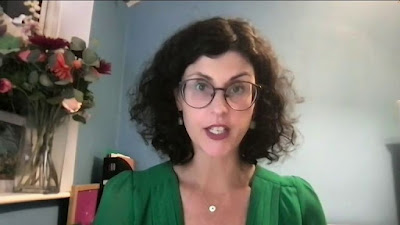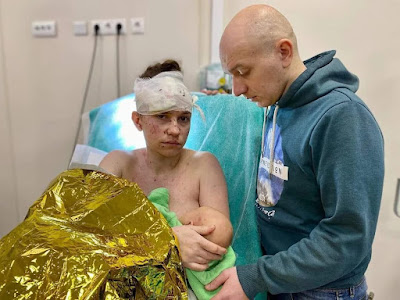by Adele Evershed
 |
Liberal Democrat MP Layla Moran has said that she is "deeply worried" for her extended family in Gaza. Moran's mother is Palestinian and members of her family in Gaza are sheltering in a church after an Israeli missile struck their home. Speaking to the BBC's Victoria Derbyshire, she said: "No longer are people saying, where do we go to be safe? The question they are now asking is, where do we want to be when we die?" —BBC, October 29, 2023 |
to the sea
already so full of salt
so you become part of the ebb and flow
governed only by the mourning moon
and any tears shed lost in the tumult of waves
or crusted in the creases of a carcass
left to rot on a far distant shore
to a rowan tree
already listing from the bombardment
so you can nourish the roots
that once nourished you
and the redness of your screams
can hang like a bloody reminder
of all the things you were too young to see
to the mountain top
with its beguiling back story
so your shallow breath
can dovetail with the off white clouds
and fall as gentle soaking rain
delivering an absolution
to those who have asked for none
or do you simply
pick up a stone
and say…
I will not die today
Adele Evershed is a Welsh poet living in America. She has been nominated for the Pushcart Prize and Best of the Net. Finishing Line Press published Adele’s first poetry chapbook Turbulence in Small Places in July. Her Novella-in-Flash Wannabe was published by Alien Buddha Press in May. Her second poetry collection The Brink of Silence is available from Bottlecap Press.


